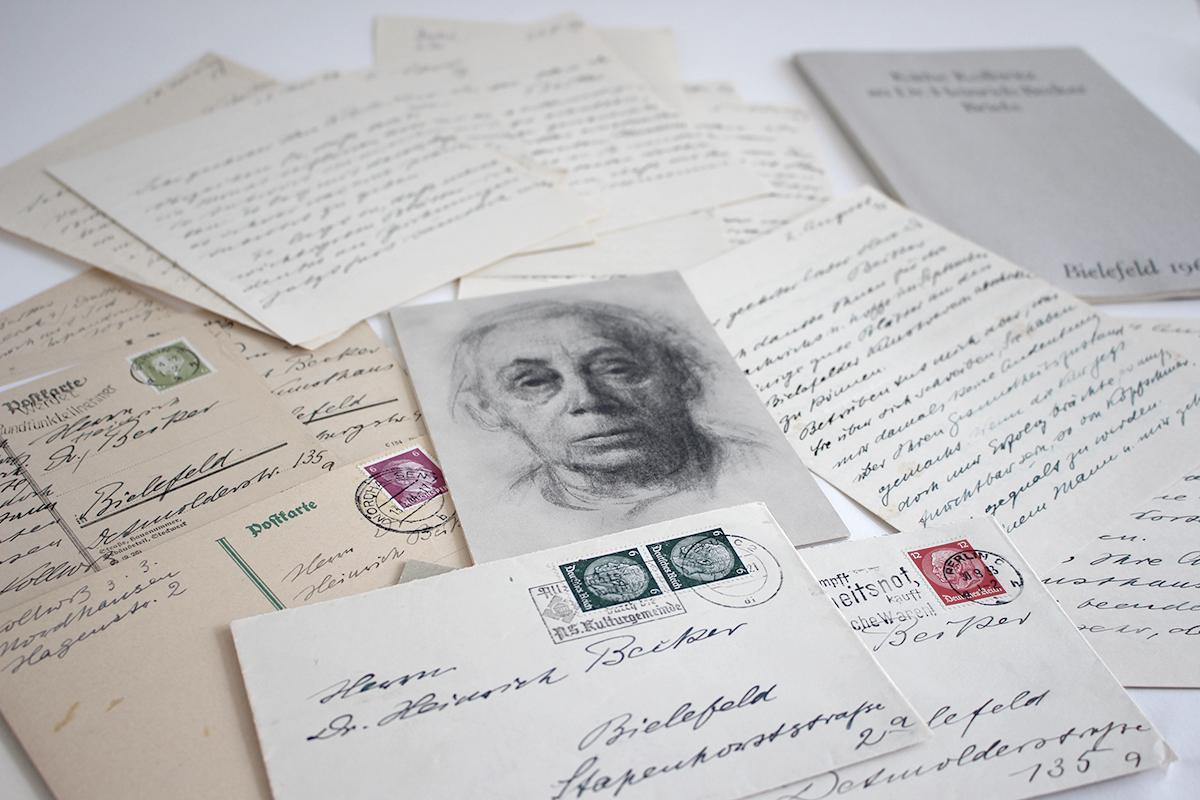Käthe Kollwitz was a dedicated writer of letters, she kept up extensive correspondence with her numerous friends, relatives and acquaintances, but also with collectors and museum curators.
The Käthe Kollwitz Museum Berlin recently received a generous donation of more than 30 letters and letter cards from the artist to the then director of the Kunsthalle Bielefeld, Dr. Heinrich Becker.
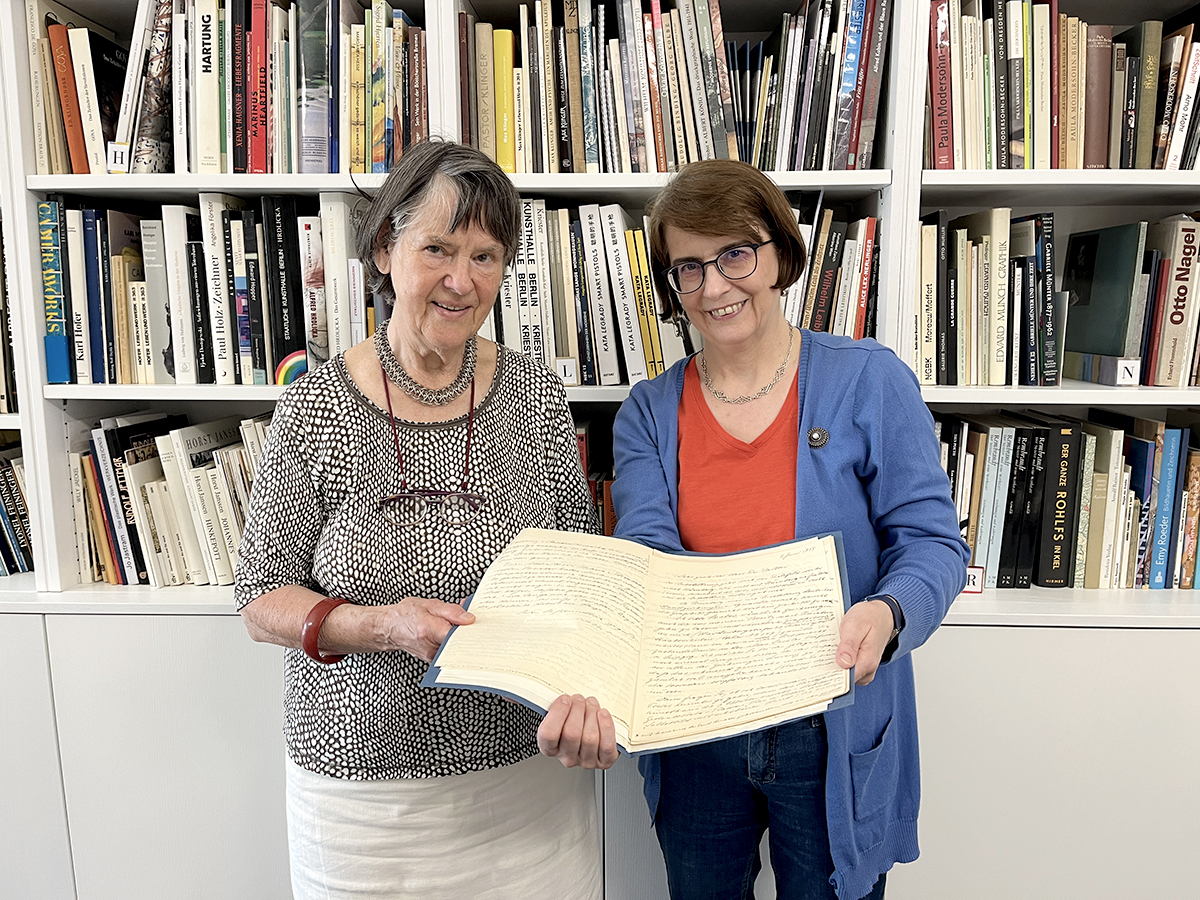
Sibylle Rauscher (left) hands over the bundle of letters to Director Dr. Josephine Gabler
On behalf of Heinrich Becker’s family, Sibylle Rauscher handed over this correspondence, which had been kept for many years, to the Kollwitz Museum in Berlin. The volume covers the period from 1928 to 1944 and thus the years of Käthe Kollwitz’s greatest successes, her ostracism by the National Socialists, and her evacuation from Berlin.
Much can be learned about Käthe Kollwitz’s work from her written statements, as Heinrich Becker had obviously asked very specific questions about certain of the artist’s works. Unfortunately, the letters of the museum director to Kollwitz have not survived. They belong, like almost all the letters that Käthe Kollwitz received over decades, to the war losses.
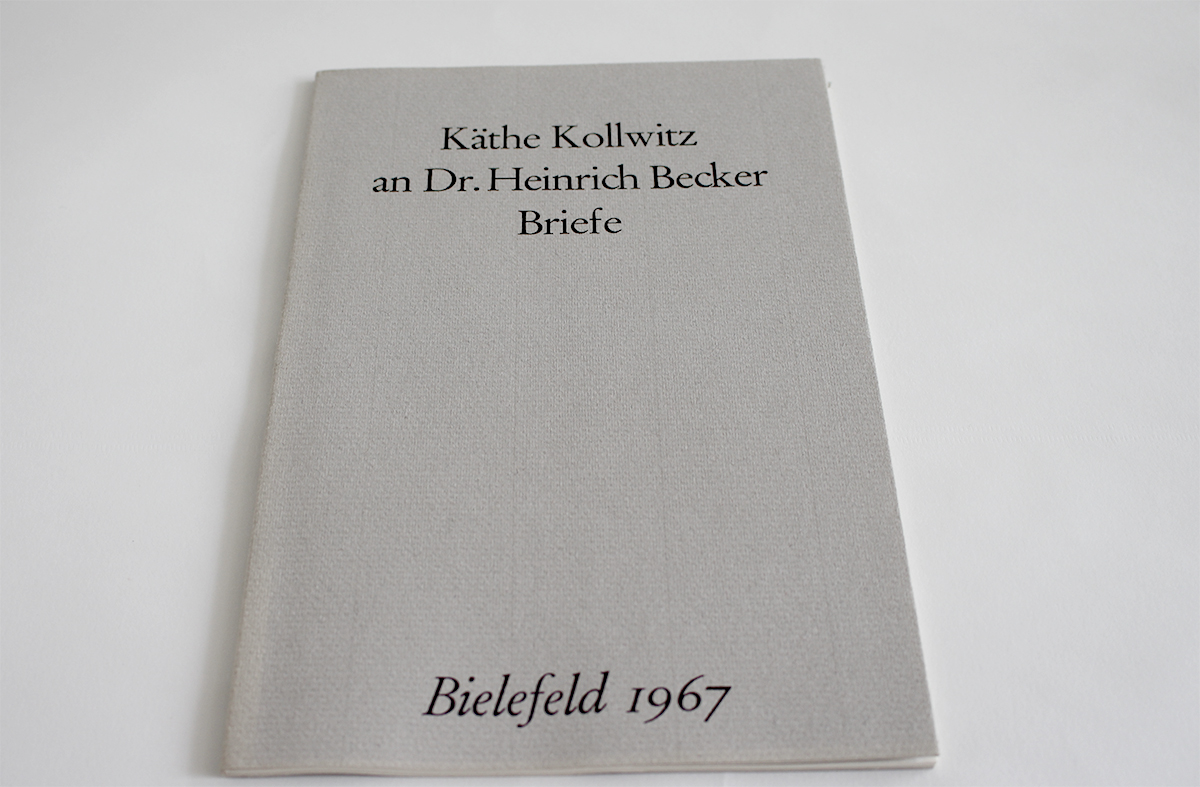
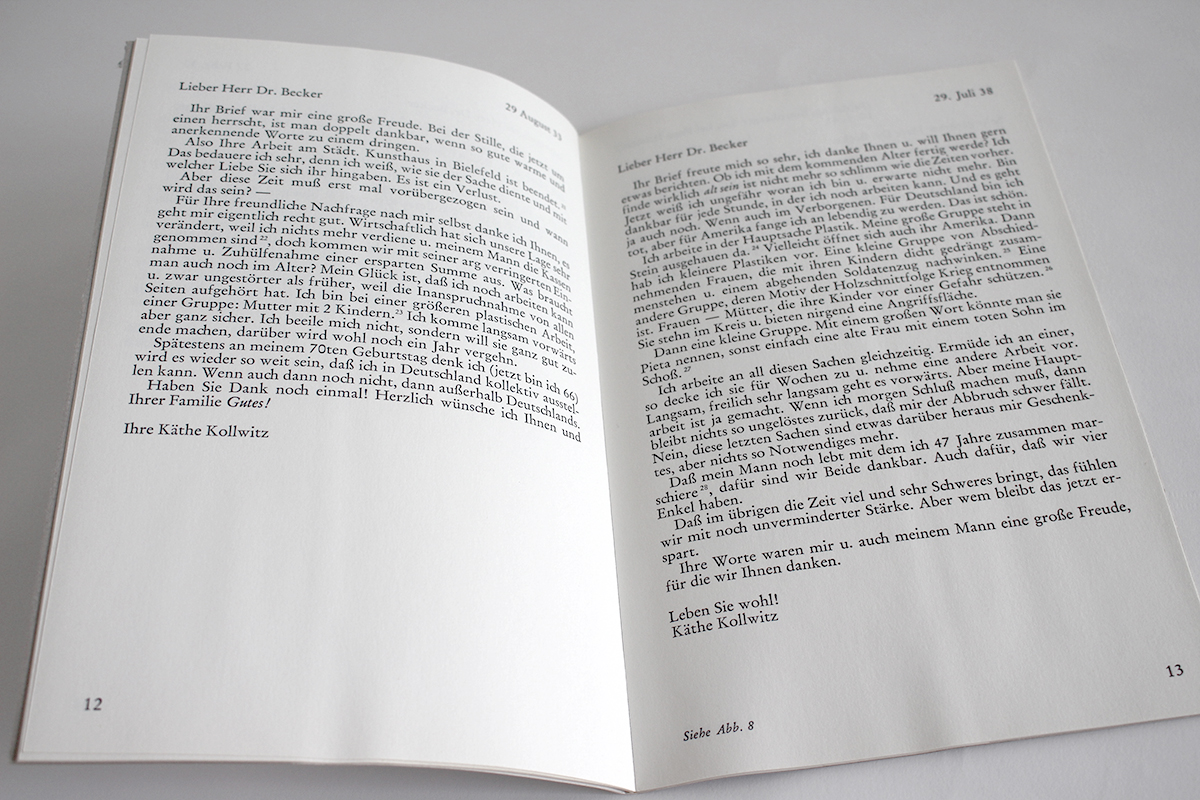
In 1967, the Städtische Museum Bielefeld published parts of the artist’s revealing correspondence with the art historian in a slim booklet.
For example, a letter dated January 31, 1933 states:
“Dear Dr. Becker.
Thank you very much for your long detailed letter. It is always nice to know that my sheets are with you in Bielefeld. Would you please say a warm greeting to your wife for the warmth with which she lets my work affect her…..
Then the two works you ask about: “lonely man” and “mother with infant”.
You are right that the “lonely man” is a fragment. From a stone whose other half is ground off. It was the first attempt of the design of the “parents”. War time. The figure of the woman was not successful. Between woman u. Man burned a small Christmas tree. Whether the stones to the two young mothers are preserved, I can not tell you at the moment. It goes me with these two sheets in such a way that it is not completely clear to me whether they are not kitschy. I have no sure feeling about them. If the stones have been ground down, I could not give any more of the few prints that exist. In any case, Becke has none ….
With warm regards
Käthe Kollwitz”
The mentioned work “Lonely Man” can be seen until the end of October in the current intervention on the discarded versions of the war cycle. Which work Käthe Kollwitz means by “Mother with Infant” is currently still unclear.
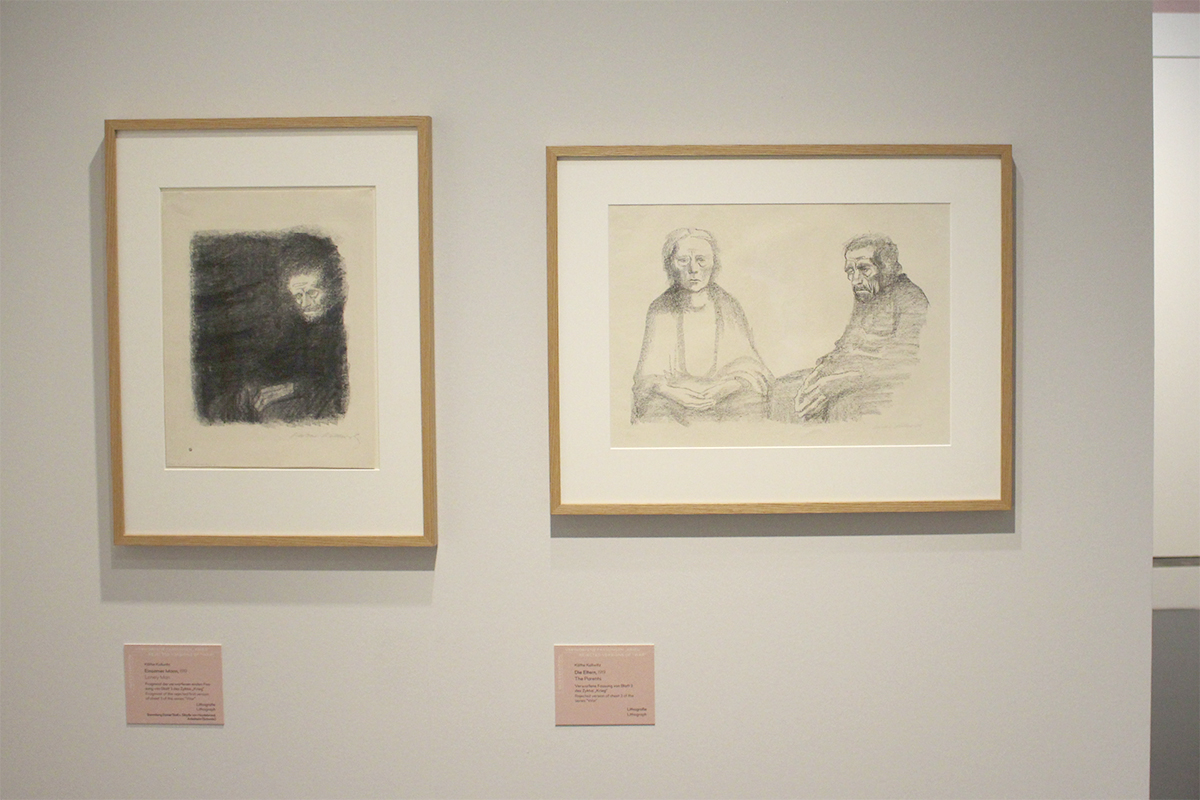
Exhibition view of the intervention “Rejected versions of war”:
“Lonely Man” from 1919, lithograph from a Swiss private collection and to the right “The Parents”, 1919, lithograph.
Dr. Heinrich Becker, born in Braunschweig in 1881 and died in Bielefeld in 1972, studied languages, literature and art history in Leipzig and Göttingen. He earned a doctorate in French literature and passed the examination for the higher teaching profession. In 1908 he took up a position as a teacher in Bielefeld and taught art history on the side at the city’s Pedagogical Seminar. From 1921, Becker was actively involved in building up an art collection for Bielefeld and organized numerous exhibitions of contemporary art. When the Städtische Kunsthaus was founded in 1927, Becker took over its management on an honorary basis and laid the foundation for the current importance of the Kunsthalle Bielefeld with purchases and exhibitions. In 1933, Becker was relieved of his post. By then he had presented three solo exhibitions of Käthe Kollwitz and shown other works by her in four thematic exhibitions.
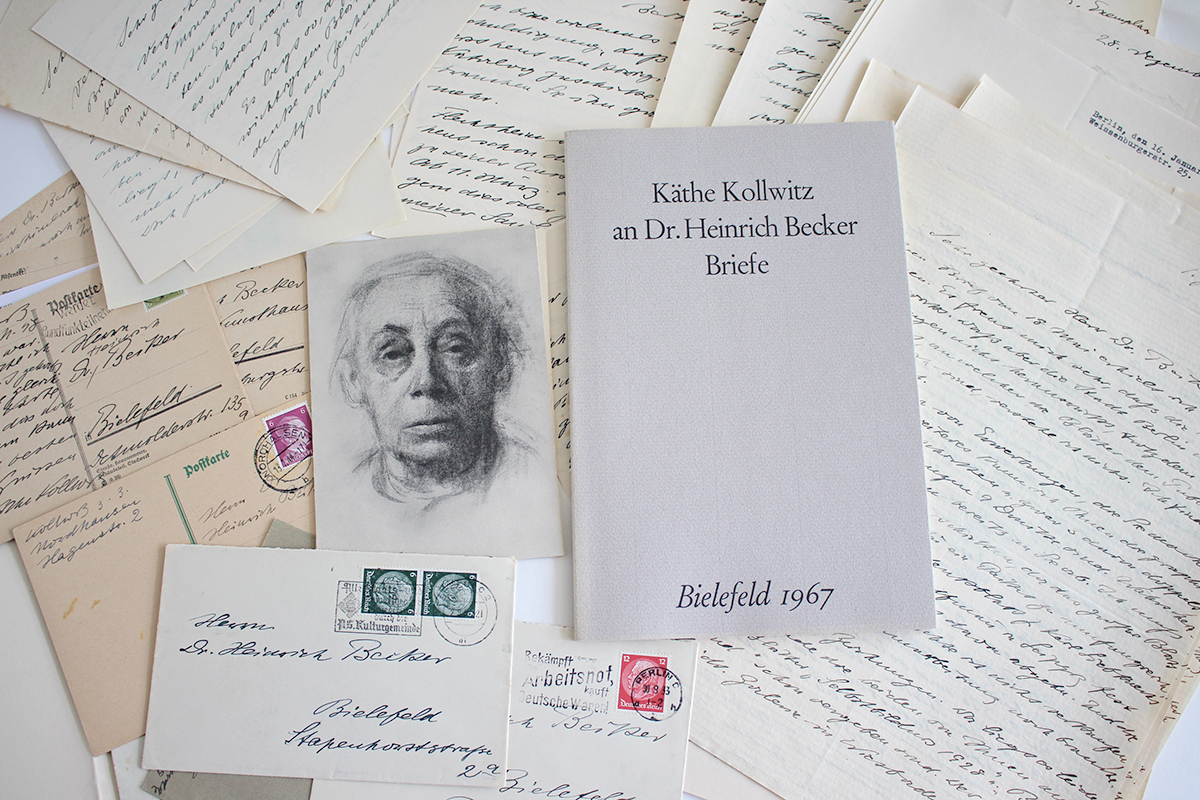
The collection he had built up suffered considerable losses as a result of the “Degenerate Art” campaign in 1937; seven works by Käthe Kollwitz alone from the Kunsthaus’s holdings were confiscated. As early as the end of May 1945, Heinrich Becker was asked by the mayor of Bielefeld to once again take over the management of the Kunsthaus, a position he held until 1954. Thanks to the generous donation of Heinrich Becker’s family, the originals of the Kollwitz letters are now in the Käthe Kollwitz Museum in Berlin.
The acquisition of further letters by the artist is part of the Kollwitz Museum’s collection policy and is being continuously pursued.
